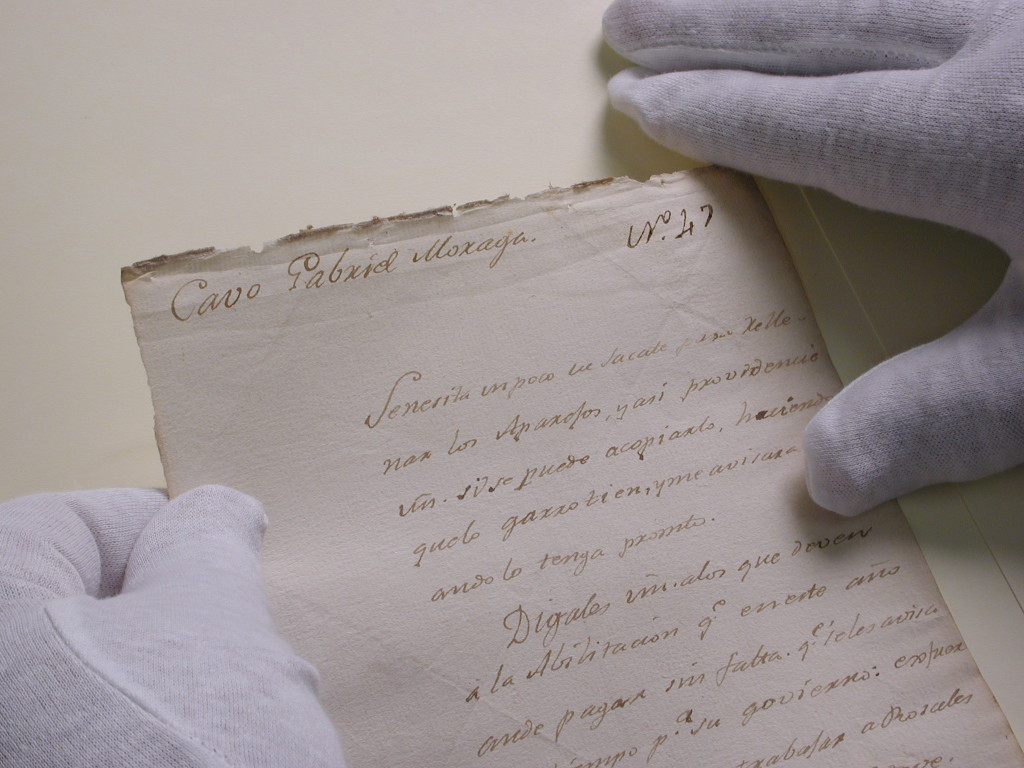ORIGINAL CONTENT

Known as the Pueblo Papers, or the Spanish-Mexican Archives, 6,000 original manuscript pages date from 1781 through the admission of California to statehood in 1850. These documents delineate the ayuntamiento or municipal government activities in San Jose. (Photo: History San José)
Throughout history, wherever there were meetings of chiefs or elders or guilds, there was someone to record what happened. That historic recorder became the Municipal Clerk. This is the function which we are most associated with: recording actions that happen in official meetings including minutes, resolutions, and ordinances.
[pullquote align=”right” cite=”” link=”” color=”” class=”” size=””]…our unofficial motto is “Clerks, we do way more than you think.”[/pullquote]
The other function to which we are most associated is putting together the agendas for the City Council and committee meetings including tracking down missing staff reports and posting the agendas in accordance with the Brown Act and local open government rules. However, our unofficial motto is “Clerks, we do way more than you think.” We are the records manager, the unofficial historian, the elections official, the legislative arm of the City Council, the point of contact for citizens and constituents who wish to participate in local government, the boards and commissions’ manager, the gatekeeper, the rule enforcer, the event planner, and the-whatever-else-needs-to-be-done person.
When you need to find something and don’t know where to go, you probably call the City Clerk, and we probably find it for you. That’s because we are usually the records manager; we receive public records requests and coordinate with the departments to respond within the 10 days mandated by California state law. We also maintain and update the municipal code and any administrative codes or policy codes, including retaining all local codes published back to the incorporation of the City. We keep the minutes back to the first meeting after incorporation. We find ourselves reading those old minutes and ordinances sometimes, too! I learned that at the first meeting of the City of San José, the first City Clerk was directed to have notices of election printed in both English and Spanish! In some cases, we may have files from before incorporation. Last year, we found translated copies of the records of El Pueblo de San José de Guadalupe, the first Spanish Pueblo in California, in our safe.
If you want to run for Council, where do you go? In California, you come to us. City Clerks are the Elections Official for their City. We prepare an information packet, and we release the nomination papers to the candidates, usually after an hour-long meeting with the candidate to go over the requirements. In cities with stand-alone elections, the City Clerk will verify the signatures, prepare the ballots, mail out the ballots, hire and train poll workers, reserve polling locations, count the ballots and store them–often with no extra staff or maybe a temporary employee or two. Whether stand-alone election or consolidated election, the City Clerk in both types of cities ensure the candidates file their campaign finance paperwork, and may enforce local election rules.
[pullquote align=”left” cite=”” link=”” color=”” class=”” size=””]If you want to run for Council, where do you go? In California, you come to us. [/pullquote]
In every City, the City Clerk does “other duties as assigned.” We create applications for boards and commissions, advertise recruitments, schedule interviews and maintain the rosters. We often provide training in the Brown Act and parliamentary procedures to Boards and Commissions members. In the City of San Jose, our councilmembers are full time and have staff. My department helps them hire their council assistants, manage their budgets and pay their bills. We also look at every expense from the Council offices and ensure those expenses follow the policies of the City. In some cities, the City Clerk may act as the Human Resource Director, the Assistant to the City Manager, Call Center manager or more.
If you want to get to know your City Clerk and see what YOUR City Clerk does, stop by… just don’t come on agenda packet day.